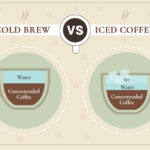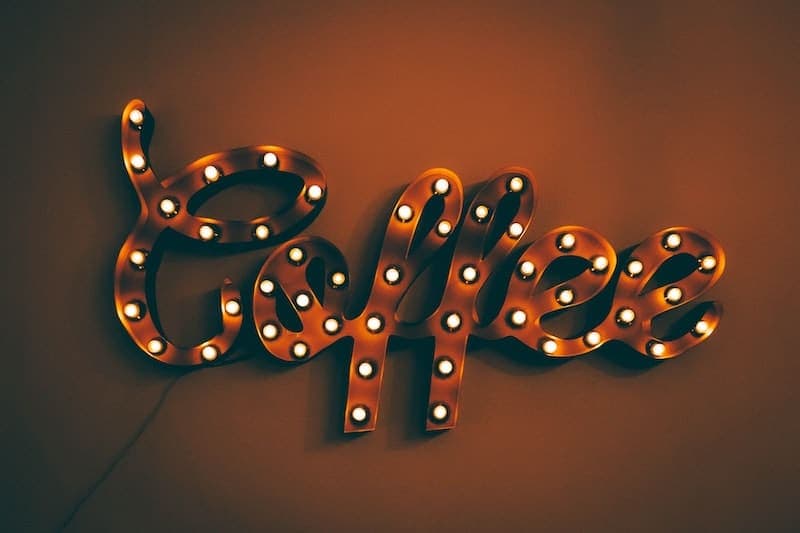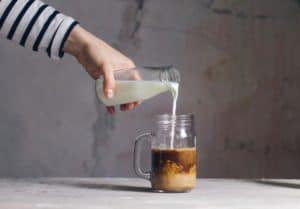
RC Cola has been around for more than 100 years and is still growing in popularity.1 RC Cola also has a diet version that many Americans choose when trying to reduce their calorie and sugar intake.
Diet RC Cola still contains caffeine, even more so than regular RC Cola. Some people need to watch their caffeine intake, so it’s important to know how much caffeine is present in your favorite drink, especially if you enjoy more than one can on a daily basis.
If you are an avid drinker of diet RC Cola and need to watch your caffeine intake, read on to find out how caffeine is in diet RC Cola and how it compares to other drinks. In short, Diet RC Cola contains 48 mg of caffeine per 12-ounce can.
How Much Caffeine Does Diet RC Soda Contain?
RC Diet Cola contains 4 milligrams (mg) of caffeine per ounce. A 12-ounce can has 48 mg of caffeine and is considered a moderate amount of caffeine. It is almost equivalent to the amount of caffeine found in an 8-ounce cup of homemade black tea. If you enjoy your morning cup of java, you are getting more than double the amount of caffeine in a single cup of coffee compared to one diet RC soda. Espresso will understandably be significantly higher with 64 mg of caffeine per ounce.
This table shows a comparison between commonly consumed drinks that naturally contain caffeine.
| Drink | Caffeine |
| Black Coffee 8 oz | 70–140 mg |
| Black Tea 8 oz | 47 mg |
| Espresso 1 oz | 64 mg |
| Green Tea 8 oz | 28 mg |
| RC Diet Soda 12 oz | 48 mg |
Do Other Diet Beverages Contain Caffeine?
Caffeine can be found naturally in the fruit, leaves, and beans of the coffee, cacao, and guarana plants. The caffeine that is added to diet RC Cola and other diet soft drinks is often synthetic. This synthetic version is often cheaper to produce but it is almost identical to the caffeine that naturally occurs in coffee and because it is made in a lab, it can often be added to soft drinks to enhance the taste. Most diet sodas include additional caffeine to improve the taste while lowering the caloric intake.
The table below provides caffeine amounts for some popular diet sodas, along with the non-diet option of the same brand. While the caffeine content in diet RC cola is higher than the non-diet version, both are moderate when compared to other soft drinks.
| Soft Drink | Caffeine |
| Diet Coke 12 oz | 46 mg |
| Classic Coke 12 oz | 34 mg |
| Diet Pepsi 12 oz | 35 mg |
| Classic Pepsi 12 oz | 38 mg |
| Diet Dr Pepper 12 oz | 41 mg |
| Dr Pepper 12 oz | 42 mg |
| Diet Mountain Dew 12 oz | 54 mg |
| Mountain Dew 12 oz | 54 mg |
| Diet RC Cola | 48 mg |
| RC Cola | 43 mg |
One of the most common ingredients found in energy drinks is guarana, which is naturally found in caffeine. Guarana is sourced from a seed in South America and contains approximately four times the amount of caffeine that occurs in coffee beans.
A typical energy drink is served in a 16 oz can, while a can of diet RC Cola is 12 oz. The caffeine content of 16 oz of RC Cola would be approximately 64 mg. When compared to other popular energy drinks, the caffeine content is significantly lower.
| Energy Drink | Caffeine |
| Red Bull 8.46 oz | 80 mg |
| Monster 16 oz | 160 mg |
| Bang 16 oz | 300 mg |
| Rockstar 16 oz | 160 mg |
| Diet RC Cola 12 oz | 48 mg |

How Much Caffeine Is Safe?
Caffeine affects everyone differently, and its effects will depend on a person’s sensitivity and how fast their bodies metabolize. Most experts suggest that 400mg is a safe daily amount of caffeine for the average adult. This equates to about 4–5 cups of coffee. It is always important to check with your healthcare provider if you feel you are sensitive to caffeine and are worried about your daily consumption, especially when taking medications, as it can make people more sensitive to the effects of caffeine.
Some symptoms that can occur after consuming high amounts of caffeine include the following:
- Anxiety
- Jitters
- Fast heart rate
- Headaches
- Nausea
- Upset stomach
Even small doses of caffeine products that contain highly concentrated caffeine could have harmful effects. According to the FDA, a single dose of 1,200 mg of pure caffeine can have a toxic effect. Fortunately, drinking soft drinks like diet RC Cola will not cause an overdose of caffeine or toxicity unless a very large amount is consumed quickly. However, the sugar content in soda could disrupt your health, and that is more of a concern than the caffeine content.
Conclusion
Diet RC Cola contains 48 mg of caffeine in a 12 oz can. While this amount is considered moderate and is generally higher than or on par with other diet sodas, you can enjoy this refreshment in the middle of the day for a slight energy kick without risking health problems. You would need to consume about eight cans of diet RC Cola to reach the suggested daily limit, which is more than most people can drink, and for the caffeine to have any negative effect, you would need to consume it quickly.
You might also like: How Much Caffeine Is in Red Bull Simply Cola?
Featured Image Credit: punsayaporn, Shutterstock














